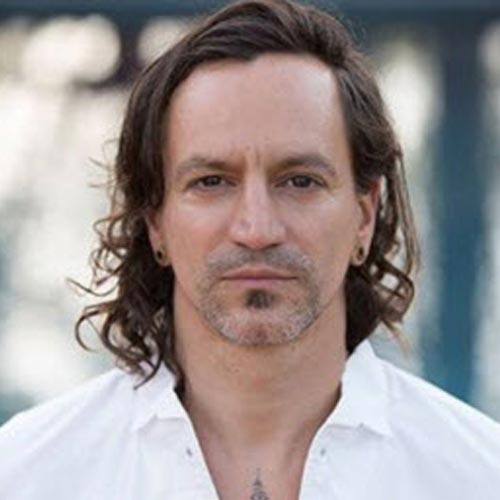Listen to my interview on Cheating: When Love Lies hosted by Jillian Hamilton
Men cheat for a variety of reasons, and it is important to note that not all men cheat, nor do these reasons apply to every man who cheats. However, traditional notions of masculinity can play a significant role in influencing the behavior of some men who cheat. Here are some ways that traditional notions of masculinity can contribute to cheating behavior, and how a more evolved masculine approach can help:
Emotional repression:
Traditional masculinity often encourages men to suppress their emotions, leading to poor communication and emotional intimacy in relationships. This can result in men seeking emotional or physical connections outside their primary relationships.
The Evolved Masculine encourages men to cultivate emotional intelligence and vulnerability. By openly sharing their feelings and connecting with their partners, men can foster deeper intimacy and trust, reducing the likelihood of seeking emotional connections outside their primary relationship.
Sexual conquest and validation
Traditional masculinity often emphasizes the importance of sexual prowess and conquests as a measure of a man’s worth. This can lead some men to cheat as a way to validate their masculinity.
The Evolved Masculine approach emphasizes self-worth and validation from within, rather than through sexual conquests. It encourages men to form genuine connections and prioritize the quality of their relationships over the quantity of their sexual partners.
Desire for variety and excitement:
Some men may cheat because they crave variety and excitement, seeking new experiences or partners outside their primary relationships. This reason is not exclusive to men and may apply to individuals regardless of their gender. However, it is worth noting that traditional masculinity can contribute to this desire when it is associated with the pursuit of multiple sexual partners or novelty.
The Evolved Masculine encourages open and honest communication within relationships. By discussing desires and fantasies with their partner, men can explore ways to maintain variety and excitement within the relationship, potentially preventing the need to seek satisfaction elsewhere.
Power dynamics:
Traditional gender roles often place men in positions of power and control in relationships. This power dynamic can lead some men to believe they have a right to cheat or to engage in infidelity as an assertion of their authority and control.
The Evolved Masculine promotes equality and partnership in relationships. By embracing a balanced power dynamic and valuing mutual respect, men can create healthier and more fulfilling relationships that are less likely to involve infidelity.
Fear of commitment:
Traditional notions of masculinity may promote the idea that commitment and vulnerability are signs of weakness. Some men may cheat to avoid commitment or to maintain an emotional distance from their partners.
The Evolved Masculine encourages men to embrace vulnerability and commitment as strengths, rather than weaknesses. By cultivating self-awareness, emotional intelligence, and personal growth, men can develop the skills and confidence needed to form deep, committed relationships built on trust and mutual support.
Peer pressure and social norms:
Men may face social pressure from peers to conform to traditional masculine stereotypes, including engaging in infidelity as a means to prove their virility or “manliness.” In some social circles, cheating may be seen as a rite of passage or even a normative behavior, leading some men to cheat in order to gain acceptance or maintain their status within their peer group.
The Evolved Masculine challenges men to question traditional masculine stereotypes and redefine their values and beliefs around relationships. By fostering a sense of self-worth independent of social pressures, men can make choices that align with their authentic selves, rather than conforming to harmful norms or expectations.
Pursuing different relationship qualities:
Some men may cheat because they perceive their spouse or partner as embodying certain qualities, such as loyalty, stability, nurturance, and mothering, which they value in a long-term relationship. However, they may also be attracted to women who exhibit different qualities, such as heightened sexual expression or stronger chemistry, which they may not associate with “wife material.” This dichotomy may lead some men to seek out extramarital relationships in order to experience the different aspects of attraction and connection they desire.
The Evolved Masculine approach encourages men to recognize and honor the multifaceted aspects of attraction and connection. By communicating openly with their partner about their desires and needs, men can work together with their spouse or partner to cultivate a relationship that encompasses both stability and nurturance, as well as passion and excitement.
Monogamy and traditional masculinity:
Traditional notions of masculinity often emphasize monogamy as the only acceptable relationship model, placing pressure on men to conform to this standard. This expectation can contribute to infidelity when men feel unable to openly discuss or explore their desires for alternative relationship models, leading them to seek connections outside of their primary relationships in secret. The traditional expectations around relationships can create an environment where men feel trapped in monogamous arrangements, even when they may not be the best fit for their needs and desires, ultimately increasing the likelihood of cheating behavior.
The Evolved Masculine acknowledges that monogamy may not be the only workable relationship model for everyone. It recognizes that ethical non-monogamy, polyamory, or other alternative relationship agreements can be valid options for some individuals and couples. The key to these arrangements is to maintain equal power dynamics, open communication, honesty, transparency, and consent from all parties involved. By fostering a respectful and conscious approach to relationships, men can explore these alternative models in a way that aligns with their values and desires, while also honoring the needs and boundaries of their partners.
A Healthier Path Forward
The Evolved Masculine model seeks to create a healthier, more conscious approach to masculinity, fostering personal growth, emotional intelligence, and genuine connection in men’s lives and relationships.
By embracing the Evolved Masculine approach, men can navigate various relationship models with integrity, personal growth, and genuine connection, creating fulfilling relationships that honor the needs and desires of all parties involved.









